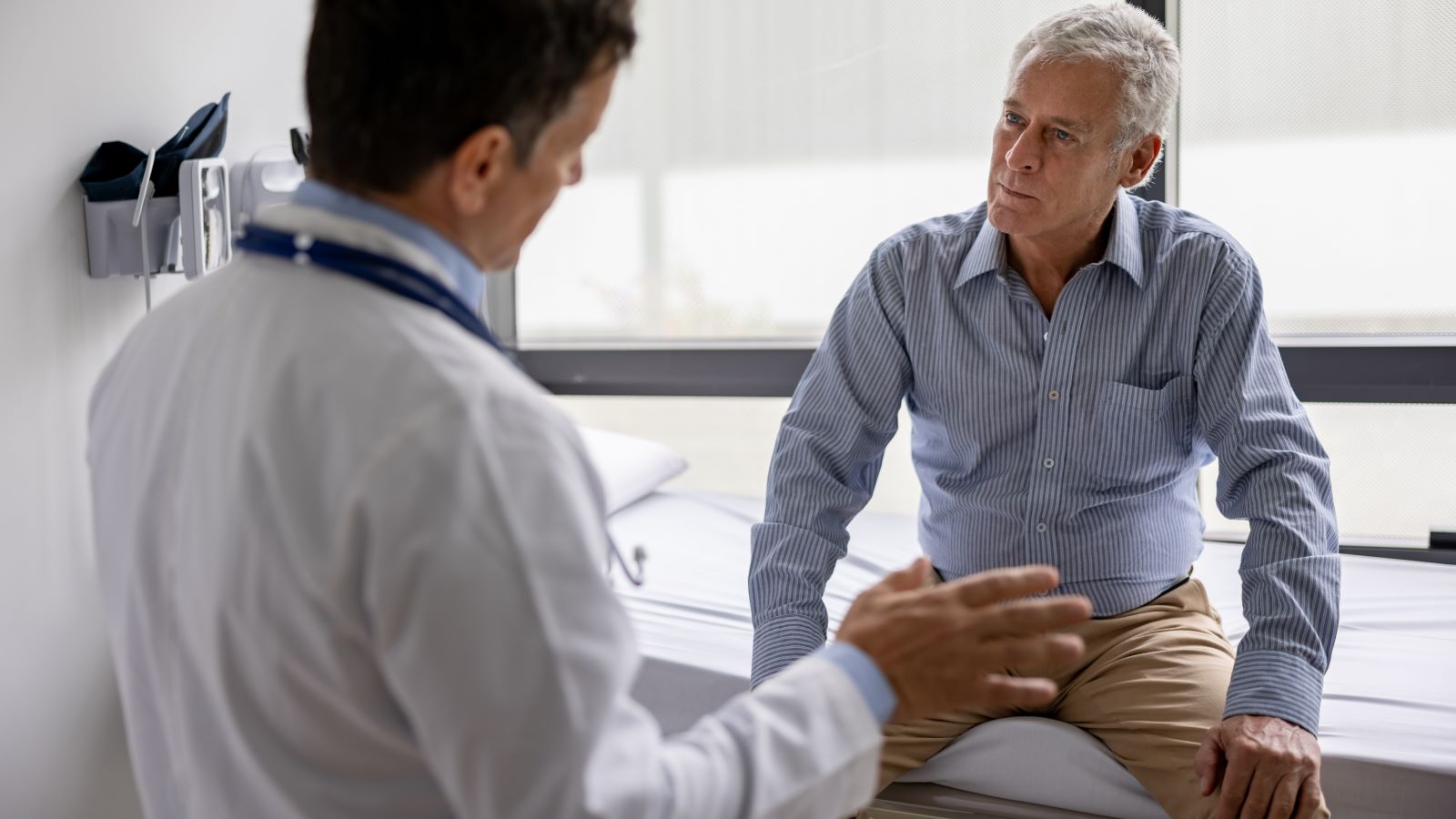<< Back
7 Signs of Testicular Cancer That Young Men Should Know

April 17, 2024
Most cancers tend to strike when you’re in your 50s and 60s.
But testicular cancer is an exception — it tends to affect men in their 20s and 30s. And unfortunately, many young men avoid regular medical care, says Ryan Dorin, MD, chief of urology and director of robotic surgery at The Hospital of Central Connecticut.
“We don’t know why testicular cancer is more prevalent in younger males, but it’s important that we tell them about it so they can be alert to any changes in their bodies,” Dr. Dorin says.
Dr. Dorin shares seven signs of testicular cancer that young men should know about.
7 signs of testicular cancer to watch out for
- A palpable lump, which can be painless or feel like an ache, or a dull pain in the testicle.
- Feeling of heaviness or pressure in the scrotum. One testicle, he explains, might feel firmer than the other.
- Swelling or sudden fluid build-up in the scrotum. The testicles may also appear red.
- Changes in testicle size or firmness. This can be due to a tumor causing a testicle to develop hard nodules.
- Swollen legs. This often happens if a tumor spreads to abdominal lymph nodes, constricting blood flow and causing a blood clot. Because the clot often occurs in the legs, it can cause swelling and also trigger other blood clot symptoms like pain and trouble breathing.
- Back pain. This typically occurs after advanced testicular cancer spreads to the lymph nodes behind your intestines. Breathing trouble can occur if it spreads to the lungs.
- Breast growth or tenderness. While rare, the changes in hormone levels in the body can cause this.
> Related: 4 Most Common Cancers in Young People
See a doctor at the first symptom
If any of the above symptoms sound familiar, speak to your primary care doctor who might refer you to a specialist.
“Even if you notice new aches and pains in the body that aren’t resolving, shortness of breath or unexplained weight loss, alert your doctor immediately,” he says.
> Want more health news? Text StartHere to 85209 to sign up for text alerts
Testicular cancer is very treatable
With the modern therapies available, Dr. Dorin says about 90% of testicular cancers are curable. Treatment options depend on how large the cancer has grown in the body, he says.
“If the cancer is contained in the testicle, we will remove the affected testicle. Sometimes, we can place a testicular prosthesis in its place later,” he says.
More advanced testicular cancers might require chemotherapy, radiation therapy or even surgery to remove affected lymph nodes.